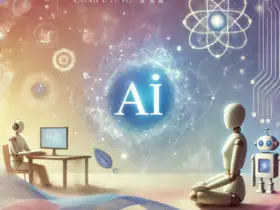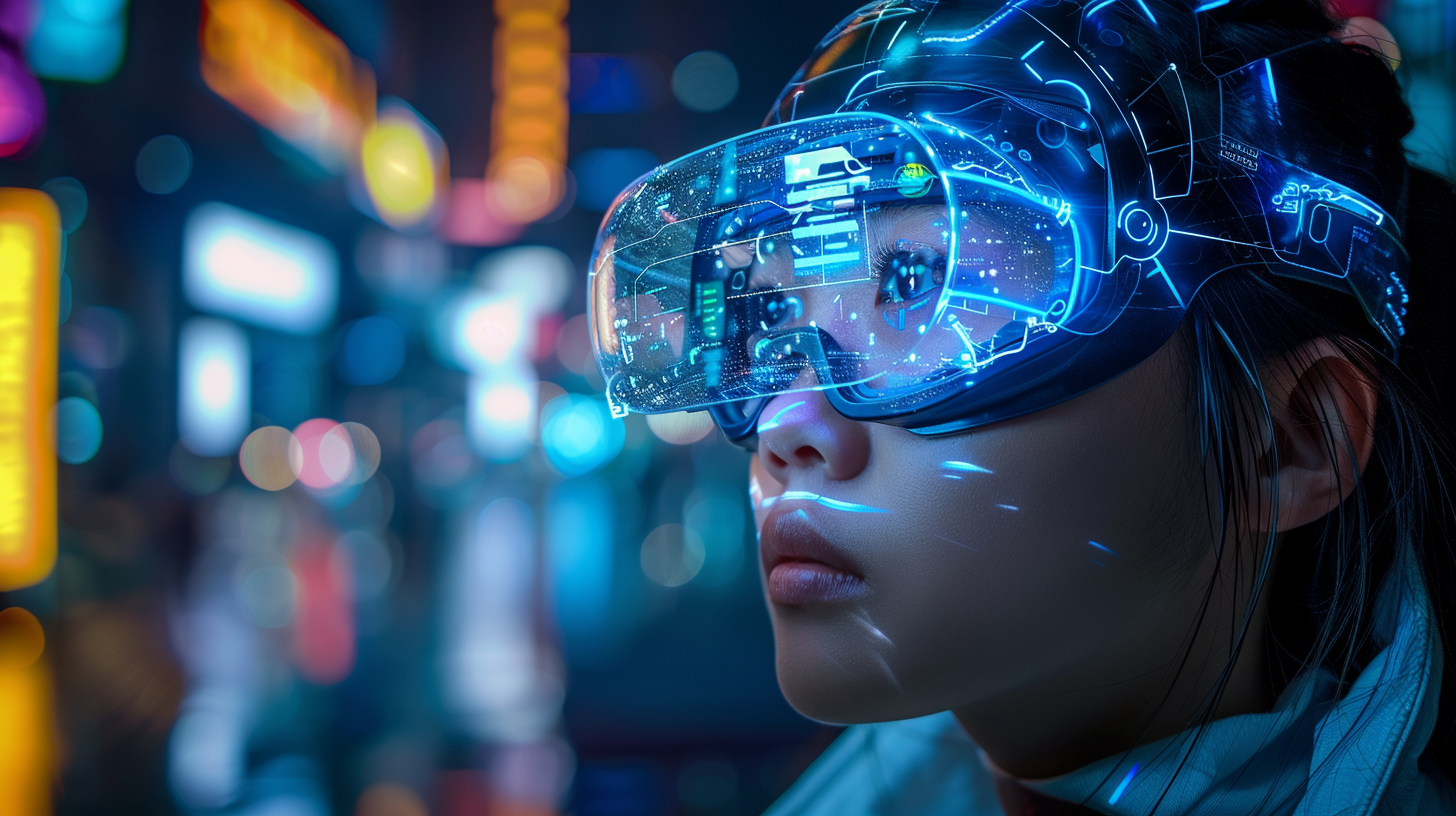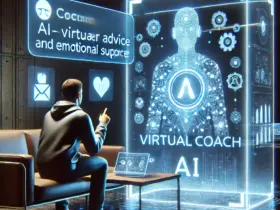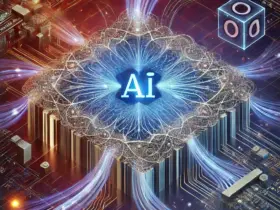In a fascinating dialogue between Jensen Huang, CEO of NVIDIA, and Mark Zuckerberg, CEO of Meta, the future of AI and computing platforms was deeply explored. This conversation was part of the SIGGRAPH event, where industry leaders gather to discuss advancements in computer graphics, artificial intelligence, and robotics. Here are the key insights and takeaways from their discussion.
Opening Remarks
Jensen Huang opened the session with a glowing introduction of Mark Zuckerberg, emphasizing his groundbreaking achievements. Zuckerberg, a college dropout, founded Meta (formerly Facebook) and led it to become a trillion-dollar company, profoundly impacting billions of people worldwide. Huang praised Zuckerberg for his visionary leadership and his role in transforming social media and digital communication.
Meta’s AI Journey
Mark Zuckerberg delved into Meta’s extensive work in AI, highlighting that their involvement is not as recent as some media outlets suggest. Meta’s AI Research Center, known as FAIR (Facebook AI Research), has been pivotal in advancing AI technologies since its inception. Zuckerberg emphasized that Meta’s work with AI spans various domains including computer vision, language models, and real-time translation.
FAIR’s contributions, such as the development of PyTorch, a widely-used deep learning framework, have been instrumental in the AI community. PyTorch, now an industry standard, originated from Meta, showcasing their long-term commitment to AI research and development.
Generative AI at Meta
When asked about the role of generative AI at Meta, Zuckerberg explained its transformative impact on their products. For instance, Instagram’s recommendation systems now leverage generative AI to curate personalized content for users. He envisions a future where AI tools will enable the creation of new types of content, further enriching user experiences.
Generative AI, according to Zuckerberg, will revolutionize how content is produced and consumed. He cited examples such as real-time content generation for Instagram stories and creating immersive virtual environments for users to explore. These advancements are just the beginning, with generative AI poised to unlock even more creative possibilities in the near future.
AI Studio and Creator AI
Zuckerberg introduced AI Studio, a toolset allowing creators to build AI versions of themselves. This innovative approach aims to solve the time-constraint issue that many creators face, enabling them to interact with their audience through AI-driven agents. This initiative reflects Meta’s vision of empowering individuals and businesses to create their own AI solutions, making advanced AI accessible to everyone.
AI Studio is designed to democratize AI creation, allowing users to train their AI agents on their content and personalize interactions with their followers. This personalization extends to small businesses as well, providing them with AI-driven customer service and engagement tools. Zuckerberg believes that AI Studio will transform how creators and businesses interact with their communities, offering more meaningful and personalized experiences.
Open Source Philosophy
A significant portion of the conversation revolved around Meta’s open-source philosophy. Zuckerberg discussed the strategic importance of open-sourcing AI models like LLaMA (Language Model by Meta AI). Open-source models democratize AI, allowing researchers and developers worldwide to contribute and innovate. This approach has spurred widespread AI adoption across industries, from healthcare to finance.
Zuckerberg recounted Meta’s history with open-source projects, such as Open Compute, which revolutionized data center designs by making them publicly available. This initiative saved billions of dollars across the industry and fostered collaboration and innovation. By open-sourcing LLaMA, Meta aims to create a similar impact, enabling organizations to build on their AI models and drive further advancements.
AI in Augmented Reality (AR) and Virtual Reality (VR)
The dialogue also touched upon the integration of AI in AR and VR. Zuckerberg highlighted the advancements in Meta’s AR glasses, which now incorporate AI functionalities such as real-time translation and interactive AI assistants. These smart glasses, developed in collaboration with Ray-Ban, aim to bring AI-powered enhancements to everyday eyewear, making them more functional and user-friendly.
Zuckerberg explained that the development of these AR glasses involved significant challenges in miniaturizing the technology to fit into a stylish form factor. Despite these hurdles, Meta succeeded in creating glasses that not only look good but also offer powerful AI features. The future iterations of these glasses will continue to integrate more advanced AI capabilities, potentially revolutionizing how we interact with the world around us.
NVIDIA’s Role and AI Computing
Jensen Huang shared NVIDIA’s contributions to AI and computing, noting their collaboration with Meta in deploying high-performance GPUs for AI workloads. NVIDIA’s GPUs, like the H100, are crucial for running large AI models efficiently. This partnership exemplifies how hardware and software innovations together drive the AI revolution.
Huang highlighted the importance of GPU-accelerated computing in handling the vast computational demands of AI models. He explained how NVIDIA’s architecture allows for efficient scaling of AI workloads, enabling Meta and other organizations to push the boundaries of what AI can achieve. This collaboration has led to the deployment of thousands of NVIDIA GPUs in Meta’s data centers, significantly boosting their AI processing capabilities.
Future of Computing Platforms
Both leaders agreed that the future of computing platforms lies in a seamless blend of AI, AR, and VR. They envision a world where AI assistants are ubiquitous, enhancing personal and professional tasks. Zuckerberg’s vision includes every business and individual having their own AI, tailored to their specific needs.
Zuckerberg and Huang discussed the potential for AI to revolutionize various industries, from healthcare to entertainment. They highlighted how AI can assist in diagnosing medical conditions, optimizing supply chains, and creating more immersive gaming experiences. The integration of AI with AR and VR will enable new forms of interaction, making technology more intuitive and accessible.
AI and the Evolution of Social Media
Zuckerberg elaborated on how AI is transforming social media platforms like Facebook and Instagram. He explained that AI-driven recommendation systems are now more sophisticated, providing users with content that is not only relevant but also engaging. These systems analyze vast amounts of data to understand user preferences and deliver personalized experiences.
He also discussed the ethical considerations of using AI in social media, emphasizing the importance of transparency and user control. Meta is committed to ensuring that AI technologies are used responsibly, with robust safeguards to protect user privacy and prevent misinformation.
AI in Enterprise Solutions
The conversation also covered the impact of AI on enterprise solutions. Zuckerberg mentioned that many companies are now leveraging Meta’s open-source AI models to develop their own applications. These models enable businesses to automate processes, enhance customer service, and gain insights from large datasets.
For example, companies in the healthcare sector are using AI to analyze medical records and predict patient outcomes, while financial institutions are employing AI to detect fraud and optimize trading strategies. The versatility of AI makes it a valuable tool across various sectors, driving efficiency and innovation.
Closing Thoughts
The conversation concluded with mutual admiration for each other’s work and the shared excitement about the future of AI. They highlighted the importance of continuous innovation and collaboration to harness AI’s full potential, transforming industries and improving lives globally.











Leave a Reply